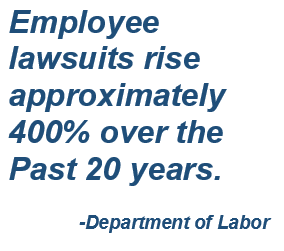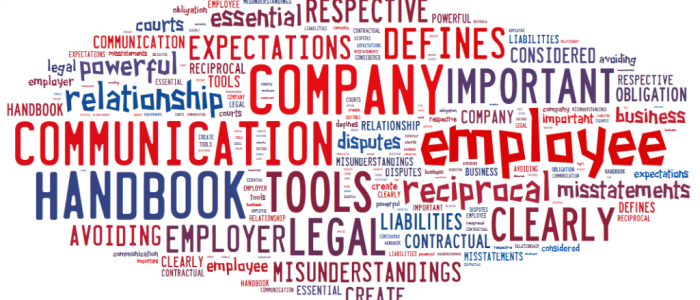5 Great Reasons Why Employee Handbooks Are Necessary
Employee handbooks are basically considered manuals containing an employer’s rules and policies which serve as a company road map and standards shared with all employees. These manuals usually contain useful information for the employee to gain a better understanding of the company, as well as establish a set of consistent policies/expectations that all employees, regardless of the management level, need to abide by while working for the company. The best handbooks will include the following categories:
- Company Overview – the business’s history, vision and goals, culture, and its commitment to their customer base.
- Benefit Policies – sick days, family leave, vacation time, compensation, etc.
- Behavioral Policies – social media, peer to peer conduct, equal employment opportunities, etc.
- Standardized Processes – employee disputes and disciplinary procedures, employee reviews, etc.

Should your business have an employee handbook?
A better question to ask, is can your company afford NOT to have an employee handbook. The handbook subtly communicates your company is a serious entity, that also serves as a critical aid to legally protect against lawsuits from your employees. In fact, according to the US Department of Labor employee lawsuits have risen approximately 400% over the last 20 years, with the number of lawsuits accusing employers of wrongful termination tripling over the same period of time. If you need an additional incentive – keep in mind the average cost to settle an out of court lawsuit is around $75, 000 while the average cost awarded during jury trials is $217,000!
The tremendous financial risk of lawsuits for an organization without a well detailed employee handbook to aid in their case can be a deathblow to the business. Below are 5 additional advantages for creating a handbook to help mitigate your risks, keeping your business financially viable now and in the future:
- Employers are able to clearly state the employment relationship is “at-will”. This gives employees notice as to the nature, scope, and rules of your working relationship, and will help prevent wrongful termination lawsuits.
- Policies on discrimination and harassment not only establish expectations regarding conduct, but it will also help protect the employer from legal liability if an employee files an employment lawsuit claiming discrimination or harassment.
- Information on your assigned payday, required work hours, as well as policies on overtime, holidays, vacation, and sick pay can avoid any unnecessary wage claims if it is properly spelled-out in the handbook.
- Provisions on the employment handbook as to the system or manner of submitting complaints or grievances as well as the proper disciplinary procedure can provide employees the proper venue for airing concerns and imposing a common and impartial means for disciplining offending employees.
- It can impose certain standards of conduct or behavior on employees such as following dress codes, tardiness or absenteeism, and this may also provide employees a guide on what they should avoid in order to not be fired.
Clearly stated, having a well put together employee handbook is not a “nice to have”, it is an absolute must for almost all businesses. It is your protection against future lawsuits from disgruntled employees. In addition, remember to review and update the handbook at least every two years so information is current, and distribute a new printed or electronic copy to all of your employees. In turn, have each employee sign the manual attesting that they’ve read and understand the policies and procedures outlined.
If you are in the process of finding a new employee who will fit into your company culture and work within your company’s rules, talk to one of our IT Recruitment Professionals at CultureFit. CultureFit is a full service Technology Staffing and recruitment firm for IT professionals that value organizational fit, employee satisfaction, and an extremely high level of technical IT skills.


